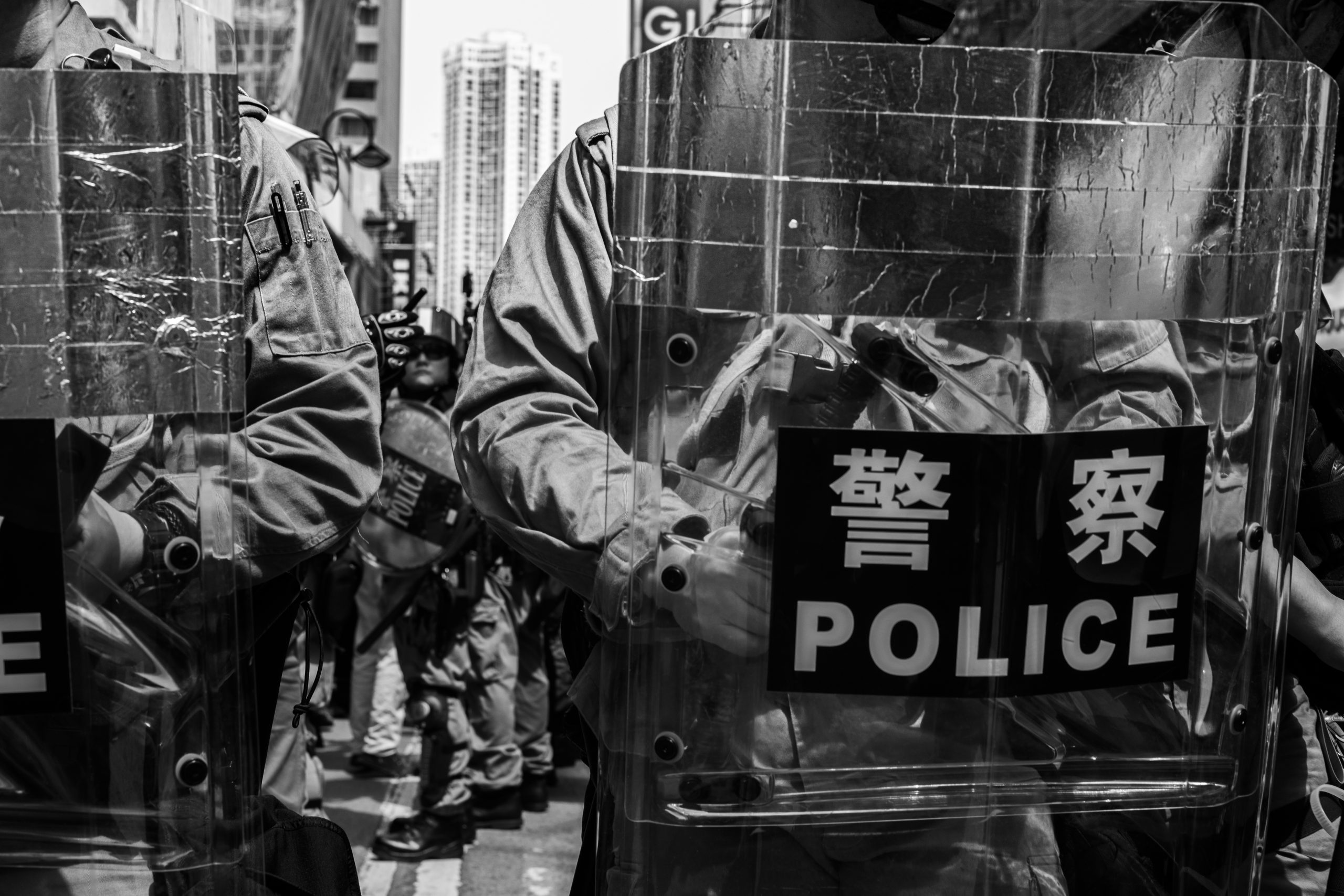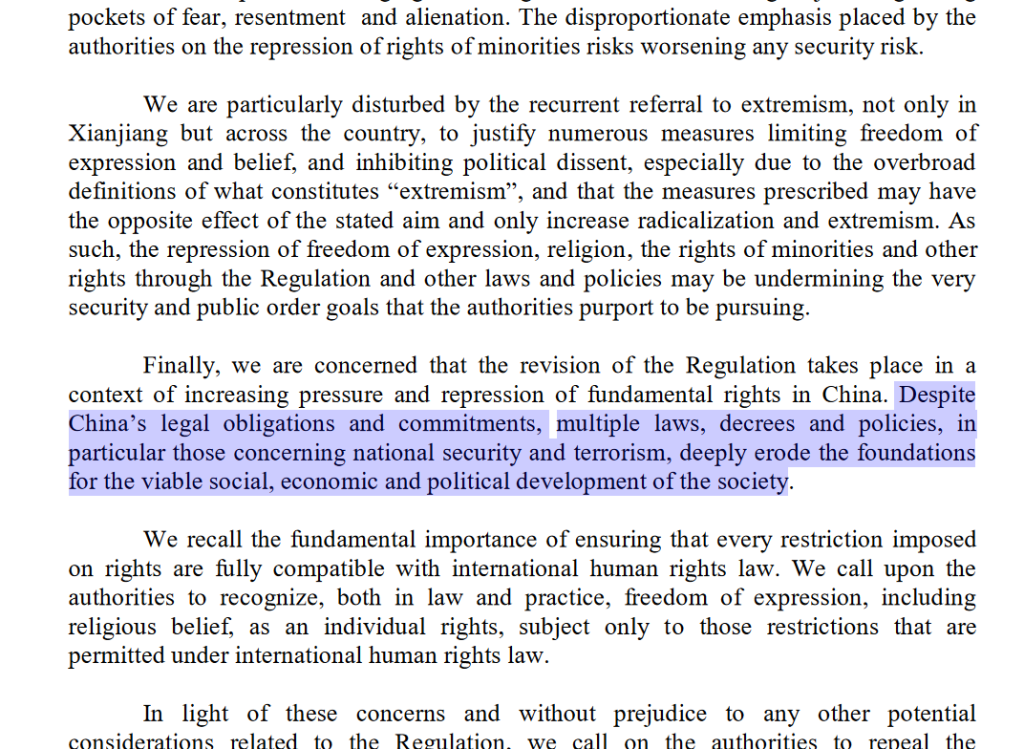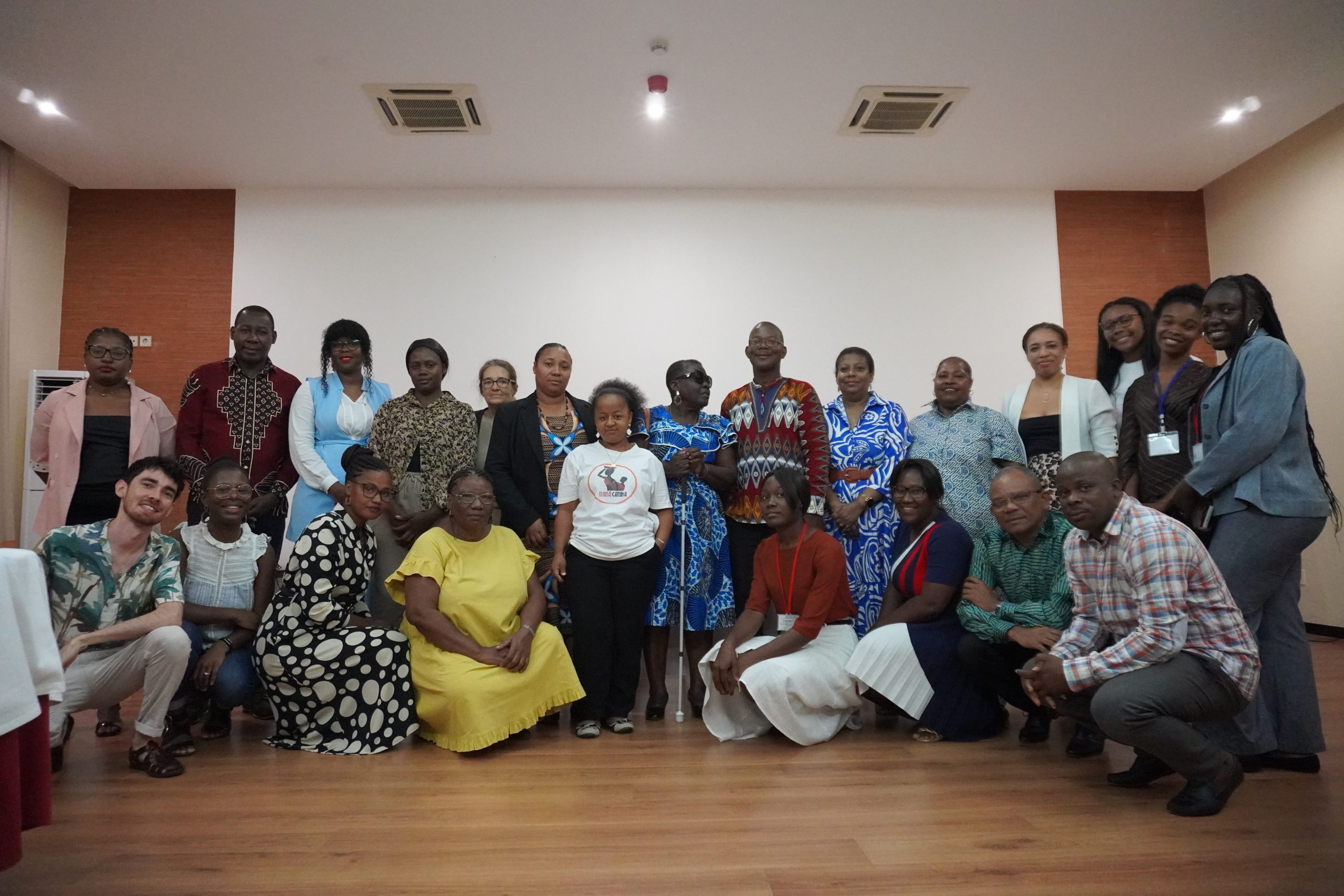Chinese human rights defenders have grown accustomed to seeing their peers disappeared, detained, tried in secret, and jailed over Christmas winter breaks, as international attention decreases. 2021 was no exception: over the past weeks, the Chinese government put renowned human rights lawyers Xie Yang and Qin Yongpei under detention and secret trial, invoking their legal advocacy work and online criticism against the authorities as proof of ’subversion of State power.’
Based on UN experts’ exchanges with the Chinese government over the 2018-2021 period, ISHR identified four key aspects of China’s abuse of national security, in an infographic released today in English and Chinese.
- The authorities systematically invoke national security to target human rights defenders, having a chilling effect on civil society as a whole;
- Critical or dissenting opinions are characterised as threats to national security, justifying far-reaching restrictions to freedom of expression;
- National security legislation bypasses basic due process, allowing for blanket denials of access to legal counsel, and enforced disappearance under ‘Residential Surveillance at a Designated Location’ (RSDL);
- In doing so, China contravenes its obligations under international human rights law, as national security-motivated restrictions fail to meet the standards of legality, necessity and proportionality.
National security is interpreted arbitrarily to justify a wide range of restrictions, with harrowing consequences for human lives. In April 2021, human rights lawyer Tang Jitian was barred from leaving China to care for his seriously ill daughter in Japan on the grounds that he would ‘endanger national security’; he is now held incommunicado. Guo Feixiong – a prominent human rights defender who was forcibly disappeared on national security grounds – was imposed an exit ban that prevented him from seeing his cancer-stricken wife Zhang Qing before she passed away in the US on 10 January. On 19 January, Guo was formally arrested for ‘inciting subversion of State power.’
China is sadly not alone in the club of countries, authoritarian and democratic, that find in national security an easy pretext for rights abuses. Yet, its systematic misuse is the single common denominator behind Beijing’s repression against Hong Kongers, Tibetans, Uyghurs, and mainland Chinese activists.
Raphael Viana David, ISHR Acting Asia Programme Manager
Based on the UN experts’ key observations and views, ISHR’s bilingual infographic demonstrates why China’s abuse of national security is problematic. It aims to provide advocates, and the international community more broadly, with a new tool to apprehend the government’s actions in light of its international law duties.
The infographic can be downloaded here in English and Chinese.
The infographic analyses 23 communications and press releases by Special Procedures mandate holders, and opinions of the Working Group on Arbitrary Detention, since 2018, as well as the Committee Against Torture’s 2016 recommendations to China. For more information about the UN Special Procedures, please click here.
Author
Raphaël Viana David
Raphaël is ISHR's China and Latin America Programme Manager in our Geneva office. He joined ISHR in 2018.
Article also available in





